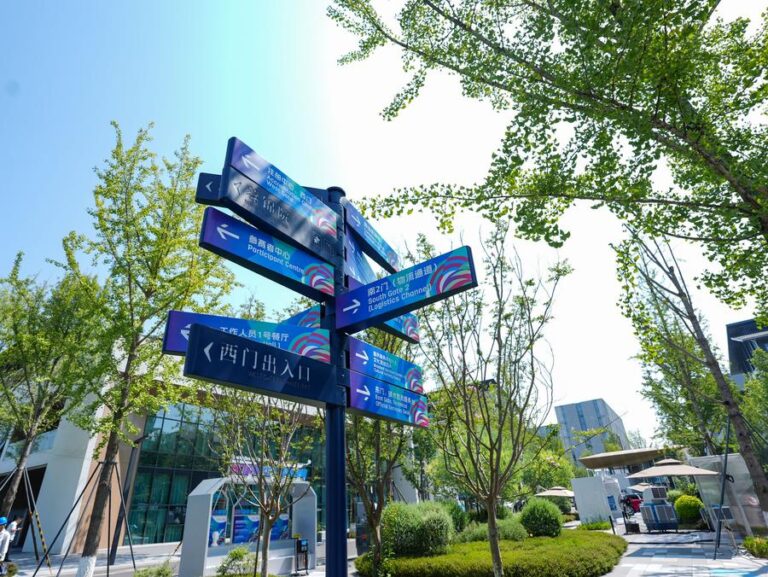CHENGDU, Aug. 6 (Xinhua) — As Chengdu prepares to host the World Games, the city has placed sustainability, frugality and environmental responsibility at the center of its venue planning and construction.
All 27 competition venues have been completed, with organizers pursuing a “renovate or reuse” approach rather than building new facilities. Temporary structures from the 2024 ITTF Mixed Team World Cup have been reused for kickboxing and Muaythai, reducing the need for new construction.
“We reduced the number of newly built temporary structures, reusing nearly 500 square meters of existing facilities,” said Tan Bingxiao, deputy director of operations at Sichuan Provincial Gymnasium.
Upgrades prioritized environmentally friendly materials, energy-efficient systems and reusable components to cut carbon emissions and ensure venues remain useful after the Games.
One of Chengdu’s best-known facilities, the 50-year-old Chengdu North Sports Center, has been renovated to host three dance sport events: standard, Latin and breaking.
“The lighting system uses energy-saving fixtures that consume far less than standard bulbs,” said Li Yuanyuan, head of the venue’s dance sport competition operations. She added that the venue now features permeable concrete paving to lower surface temperatures, reduce reliance on air conditioning and help cut emissions.
15 venues are outdoors, with several set in parks and public waterways, integrating the competitions into the city’s “park city” development vision. At Guixi Ecological Park, flying disc events will take place in temporary tents, stands and shelters set up on the grass. All structures will be dismantled after competition to return the park to its original state.
The World Games, the highest-level international multi-sport event for non-Olympic disciplines, will open Thursday in Chengdu, featuring 34 sports, 60 disciplines and 256 events.
At Chengdu Sport University, sustainability measures include leasing UPS power units, sound systems, shelters and cable bridges to cut costs and emissions from production and transport.
“We applied a venue-specific budgeting approach, using what we can borrow, renting instead of buying when necessary,” said Lan Renqin, deputy director of the venue center.
The university will host underwater sports, life saving, boules and flying disc. “We used foldable furniture and convertible spaces to ensure the venue can transition seamlessly for long-term use,” Lan said. “Equipment like LED screens and lighting systems will be repurposed for school training after the Games.” ■

